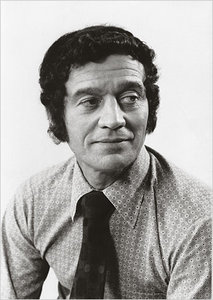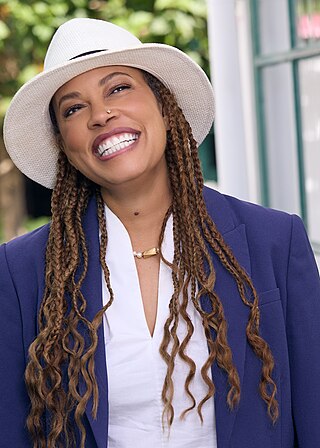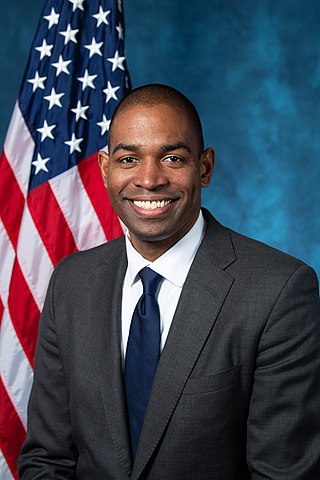Related Research Articles
Loving v. Virginia, 388 U.S. 1 (1967), was a landmark civil rights decision of the U.S. Supreme Court which ruled that laws banning interracial marriage violate the Equal Protection and Due Process Clauses of the Fourteenth Amendment to the U.S. Constitution. Beginning in 2013, the decision was cited as precedent in U.S. federal court decisions ruling that restrictions on same-sex marriage in the United States were unconstitutional, including in the Supreme Court decision Obergefell v. Hodges (2015).
Marge Piercy is an American progressive activist, feminist, and writer. Her work includes Woman on the Edge of Time; He, She and It, which won the 1993 Arthur C. Clarke Award; and Gone to Soldiers, a New York Times Best Seller and a sweeping historical novel set during World War II. Piercy's work is rooted in her Jewish heritage, Communist social and political activism, and feminist ideals.

Anatole Paul Broyard was an American writer, literary critic, and editor who wrote for The New York Times. In addition to his many reviews and columns, he published short stories, essays, and two books during his lifetime. His autobiographical works, Intoxicated by My Illness (1992) and Kafka Was the Rage: A Greenwich Village Memoir (1993), were published after his death.
Critical race theory (CRT) is an interdisciplinary academic field focused on the relationships between social conceptions of race and ethnicity, social and political laws, and media. CRT also considers racism to be systemic in various laws and rules, and not only based on individuals' prejudices. The word critical in the name is an academic reference to critical theory rather than criticizing or blaming individuals.

Barbara Smith is an American lesbian feminist and socialist who has played a significant role in Black feminism in the United States. Since the early 1970s, she has been active as a scholar, activist, critic, lecturer, author, and publisher of Black feminist thought. She has also taught at numerous colleges and universities for 25 years. Smith's essays, reviews, articles, short stories and literary criticism have appeared in a range of publications, including The New York Times Book Review, The Black Scholar, Ms., Gay Community News, The Guardian, The Village Voice, Conditions and The Nation. She has a twin sister, Beverly Smith, who is also a lesbian feminist activist and writer.

Maurice Berger was an American cultural historian, curator, and art critic, who served as a Research Professor and Chief Curator at the Center for Art, Design and Visual Culture, University of Maryland, Baltimore County. Berger was recognized for his interdisciplinary scholarship on race and visual culture in the United States.
Racial passing occurs when a person who is classified as a member of a racial group is accepted or perceived ("passes") as a member of another racial group.

France Winddance Twine is a Black and Native American sociologist, ethnographer, visual artist, and documentary filmmaker. Twine has conducted field research in Brazil, the UK, and the United States on race, racism, and anti-racism. She has published 11 books and more than 100 articles, review essays, and books on these topics.

Mildred Delores Loving and Richard Perry Loving were an American married couple who were the plaintiffs in the landmark U.S. Supreme Court case Loving v. Virginia (1967). Their marriage has been the subject of three movies, including the 2016 drama Loving, and several songs. The Lovings were criminally charged with interracial marriage under a Virginia statute banning such marriages, and were forced to leave the state to avoid being jailed. They moved to Washington, D.C., but wanted to return to their home town. With the help of the American Civil Liberties Union (ACLU), they filed suit to overturn the law. In 1967, the Supreme Court ruled in their favor, striking down the Virginia statute and all state anti-miscegenation laws as unconstitutional, for violating due process and equal protection of the law under the Fourteenth Amendment. On June 29, 1975, a drunk driver struck the Lovings' car in Caroline County, Virginia. Richard was killed in the crash, at the age of 41. Mildred lost her right eye.
Multiracial Americans or mixed-race Americans are Americans who have mixed ancestry of two or more races. The term may also include Americans of mixed-race ancestry who self-identify with just one group culturally and socially. In the 2020 United States census, 33.8 million individuals or 10.2% of the population, self-identified as multiracial. There is evidence that an accounting by genetic ancestry would produce a higher number.
Little White Lies or Little White Lie may refer to:

Anita Florence Hemmings was known as the first African American woman to graduate from Vassar College. As she was of both African and European ancestry, she passed as white for socioeconomic benefits. After graduation, Hemmings became a librarian at the Boston Public Library.

Nkechi Amare Diallo is an American former college instructor and activist known for presenting herself as a black woman despite being born to white parents. She is also a former National Association for the Advancement of Colored People (NAACP) chapter president.

Loving Day is a 2015 novel by Mat Johnson, published by Spiegel & Grau on May 26, 2015. It was named a best book of the year by numerous publications and won the American Book Award.
Kahane Cooperman is an American documentary filmmaker and television director and producer, whose 2016 documentary Joe's Violin was nominated for an Academy Award for Best Documentary Short Subject.

The Rachel Divide is a 2018 documentary about the controversial life of Rachel Dolezal, also known as Nkechi Diallo, an American woman of white parentage who identifies as black, and was forced to resign as president of the NAACP chapter in Spokane, Washington when her race and ancestry were exposed. The film was directed by Laura Brownson and distributed by Netflix, originally airing on April 27, 2018.

Antonio Ramon Delgado is an American attorney and politician serving as the 65th lieutenant governor of New York since 2022. A member of the Democratic Party, Delgado served as the U.S. representative from New York's 19th congressional district from 2019 to 2022. He is the first person of either African–American or Latino descent to be elected to Congress from Upstate New York, and the first Latino person to hold statewide office in New York.

Nancy Florence Buirski was an American filmmaker, producer, and photographer. She wrote, directed, and produced the documentary films A Crime on the Bayou (2020) and Desperate Souls, Dark City and the Legend of Midnight Cowboy (2022).
Mehret Mandefro is an Ethiopian–American film/television producer, writer, physician and anthropologist. She is the group leader of the Indaba Africa, a co-founder of Realness Institute and co-founder of Truth Aid Media and is a board member of advisors for the shared Harvest Fund. She is also a recipient of The Paul & Daisy Soros Fellowships for New Americans (2001) and in 2007 sat as one of the 41 distinguished New American panelists. In 2016, she was honoured by Carnegie Corporation of New York as one of America's Great Immigrants.
Georgina Lawton is a British-Irish-Nigerian writer whose personal narrative is the subject of a non-fiction book: Raceless: In Search of Family, Identity, and the Truth About Where I Belong (ISBN 978-0063009486). Part-memoir, part-socio-political discussion, the book focuses on the construct of racial identity in the homes exploring Lawton's experience of being mixed-black in a white home with two white parents without knowing why, and discovering she was the product of a brief liaison between her mother and her birth father. Taking a DNA test after the latter died showed her to be greater than 40% Nigerian.
References
- ↑ Jane Mulkerrins (July 12, 2015). "Meet the black woman raised to believe she was white". The Daily Telegraph .
- ↑ Dolsten, Josefin (November 6, 2018). "NY House candidate Antonio Delgado's wife opens up about couple's Jewish life". The Times of Israel. Retrieved May 9, 2019.
- ↑ Genetta M. Adams (March 22, 2015). "Little White Lie Documentary: Growing Up White Until a Family Secret Revealed She Was Not". The Root. Archived from the original on June 12, 2015. Retrieved June 18, 2015.
- ↑ "Little White Lie". PBS. Retrieved June 18, 2015.
- ↑ "Lacey Schwartz, Antonio Delgado". The New York Times. September 25, 2011. Archived from the original on June 13, 2015. Retrieved June 12, 2015.
- ↑ Lee, Felicia R. (August 1, 2014). "'Little White Lie,' Lacey Schwartz's Film About Self-Discovery". The New York Times . Retrieved May 9, 2019.
- ↑ Marissa Charles. "'I was living in a racial closet': Black filmmaker Lacey Schwartz on growing up white". Salon.com. Retrieved June 18, 2015.
- ↑ Anna Holmes (February 10, 2018). "Black With (Some) White Privilege". The New York Times. p. SR1.
- ↑ "Lacey Schwartz, Antonio Delgado: Weddings". The New York Times. September 25, 2011. Retrieved October 20, 2018.
- ↑ "Jewish filmmaker is now New York's second lady". The Forward. May 3, 2022.
- ↑ "Lacey Schwartz". Stone Fox Bride. February 17, 2017.
- ↑ "Little White Lie: Lacey Schwartz Uproots Her Family Tree". PBS. Retrieved June 18, 2015.